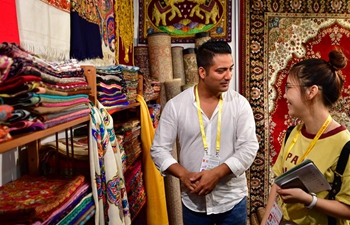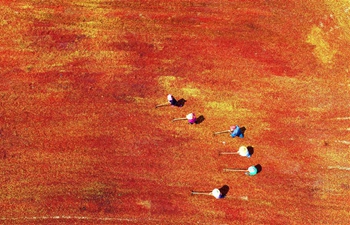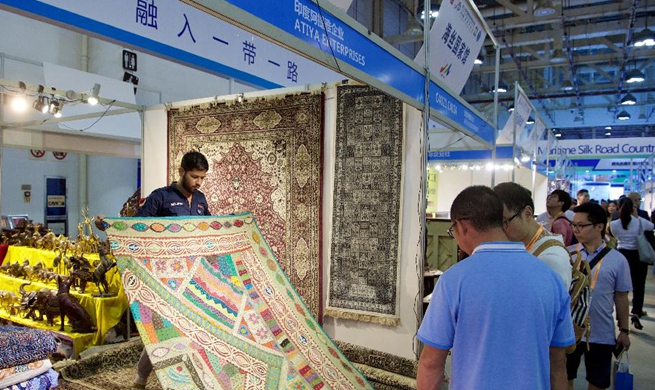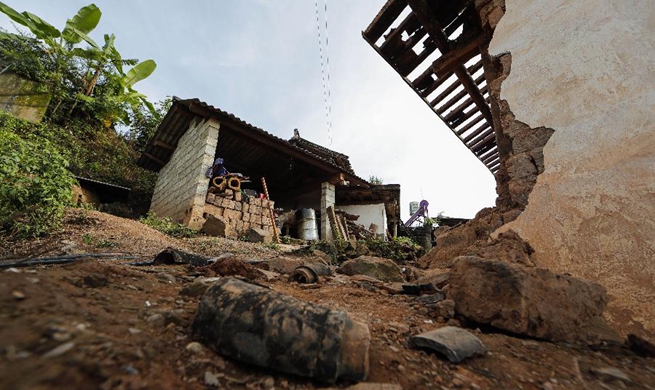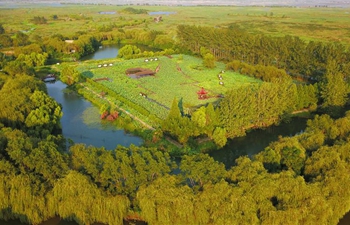JERUSALEM, Sept. 8 (Xinhua) -- Jerusalem has been emerging as a biomedical hub in recent years. Life sciences are being a strong-suit of the city and start-up companies in the field are popping up.
In Tel Aviv, Israel's financial and hi-tech hub, its own special vibe is creating traction.
"Starting here in Jerusalem is a very buzzing natural environment for start-ups," said Dr. Shai Melcer in an exclusive interview to Xinhua. Melcer is the CEO of BIOHOUSE, a platform for start-up companies in medical field.
"It's a start-up of start-ups," he explained.
Located in the hills surrounding Jerusalem, where one of the leading hospitals in Israel is situated, BIOHOUSE was inaugurated in the summer of 2018.
BIOHOUSE provides nascent companies with access to sophisticated labs and office space for technological innovations. It also provides experienced mentors who can give business guidance.
Surviving in biomedical business can be struggle. Most of the companies need at least a decade of hard work before being able to pay off their efforts.
If BIOHOUSE manage to increase the ratio of success for start-ups from 10% to 30%, Melcer would consider it a success.
Jerusalem is home to leading universities and colleges in life and computer sciences.
This is also the driving force for medical device company RenalSense.
Based in hi-tech center of Har Hozvim in Jerusalem, RenalSense provides real-time kidney function monitoring which is important for patients in intensive care units (ICU).
When Kleiman's father died a decade ago due to renal complication after a routine orthopedic surgery, he realized there was a lack of digital, continuous monitoring of kidney function. He took his years of experience as a hi-tech entrepreneur into work.
So far, nurses check urine output by manually measuring the contents of a Foley bag. They do so once every few hours. But when Acute Kidney Injury (AKI) occurs, it is often devastating. AKI happens frequently after a surgical procedure or during an ICU stay. Mortality rates are relatively high.
Trials of RenalSensein's product in Jerusalem's Hadassah hospital have been successful. Studies were also conducted at the University of Pittsburg Medical Center.
"We detected 35% more of AKI than nurses can detect," said Avi Kleiman, CEO of RenalSense.
Commercialization of the product has already begun with a distribution agreement signed with a major renal pharmaceutical, Fresenius.
For Kleiman and Melcer, evolution of Jerusalem as a life sciences power house was a natural one. As a relatively small city with almost 900,000 residents, there are over 100 companies and three innovation centers that are working to change the way patients are treated.
"Everything pales when you talk about doing business in Jerusalem," Kleiman said, "Yes, there are challenges...I believe that the Jerusalem municipality is doing a lot of work...there's a lot to do, the starting place was very low but I see tremendous work."




